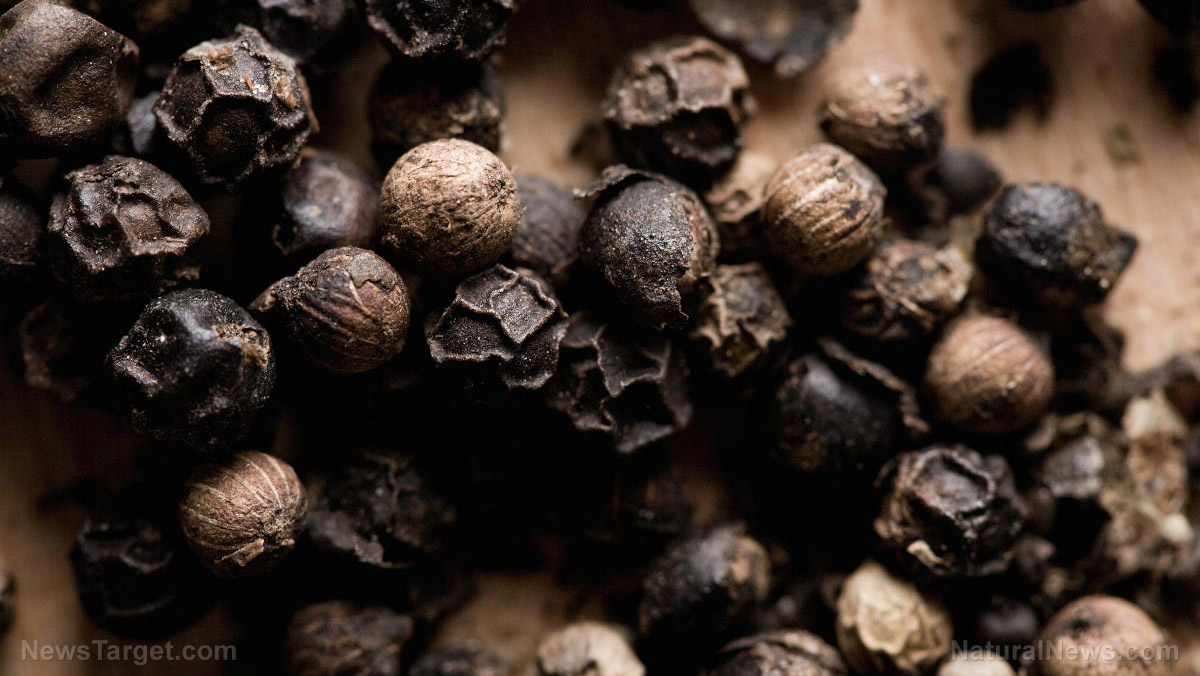Cubeb Pepper has incredible health benefits and is used in Ayurvedic medicine to treat respiratory illness
03/19/2020 / By Lance D Johanson

As COVID-19 spreads globally and saturates media headlines, avoiding respiratory illness is on a lot of minds. A lung infection is a serious issue, but there are steps people can take to help their immune systems recover from any respiratory infection and to stop the virus from replicating in their tissues.
The Federal government and the Centers of Disease Control are not providing information or resources that can help support families, as respiratory disease sweeps through the country.
For centuries Ayurvedic medicine has used anti-inflammatory spices as medicine to help dry up mucus and open up the airways. One of these spices is Cubeb pepper (Piper cubeba).
Cubeb pepper is a medicinal spice with valuable anti-inflammatory properties for treating infections
The Cubeb pepper comes from a climbing plant that grows up to ten meters long. The plant has dark green leathery leaves and blooms out white flowers. These flowers slowly develop into soft berries that have a wrinkled surface. This small fruit is called the cubeb pepper berry.
Found primarily in the warm climates of Malaysia, Sri Lank, India and the Lesser Antilles, cubeb pepper is prominent in an Ayurvedic spice mixture called Ras El-Hanout. The berry is harvested just before it ripens. It is then dried out in the sun and stored. Monks and nuns have used the berries as part of herbal medicine formulas for centuries.
In monastic medicine, cubeb pepper is used to treat mild inflammation in human tissues. Cubeb pepper is often prescribed as a powder in 2 to 4 gram doses, depending on the need. The essential oil of the berry contains monoterpenes and sesquiterpenes. These terpenes confer antibacterial and anti-inflammatory properties, assisting the immune system. These benefits are best realized in the urinary tract, reducing inflammation in the kidneys to help the body remove waste. The berry also reduces inflammation in bladder catarrh, eliminates ureter infection, and reduces inflammation in the prostate and uterus.
The pepper also stimulates saliva production and gastric juices, jump-starting digestive activity to help clear the gastrointestinal tract of infectious microorganisms and wastes. The process of waste elimination is a crucial part of the equation when someone is facing an infection.
In Ayurveda medicine, cubeb peppers dissolve mucus and help the body eliminate it. This prevents viruses from replicating and suppresses the coughing reflex, preventing airborne transmission of virus particles. Because of these properties, cubeb pepper could help curb the transmission of respiratory viruses that travel in air droplets from an infected person’s mouth and nose. Ayurveda practitioners use cubeb pepper to treat bronchitis, helping patients recover more quickly, while stopping the spread of virulent material.
The phytochemicals in cubeb pepper can help treat bacterial, protozoan, and viral infections including previous types of coronaviruses
One of the most recently studied components of cubeb pepper is hinokinin, a bioactive lignin. Hinokinin exhibits cytotoxicity against different cancer lines: P-388 (murine lymphocytic leukemia), HT-29 (human colon adenocarcinoma), A-549 (human lung adenocarcinoma) and MCF-7 (human breast adenocarcinoma).
Hinokinin has also been effective for treating Chagas’ disease, which affects nearly eight million people in Latin America. This lignan works by combating Trypanosoma cruzi, a type of protozoa that causes illness in humans.
Hinokinin is also effective for controlling bacterial infections in the mouth such as Enterococcus faecalis, Candida albicans and several Streptococcus strains.
Pertaining to viral infections, hinokinin is also effective, according to studies, against severe acute respiratory syndrome coronavirus. Hinokinin joins a long list of phytochemicals that can stop coronaviruses from replicating in the body. This is important research, considering the times we live in — a time when everyone is limiting contact but doing virtually nothing to strengthen their innate immune response.
Sources include:
Submit a correction >>
Tagged Under:
This article may contain statements that reflect the opinion of the author
RECENT NEWS & ARTICLES
COPYRIGHT © 2017 SUPER FOODS NEWS





















